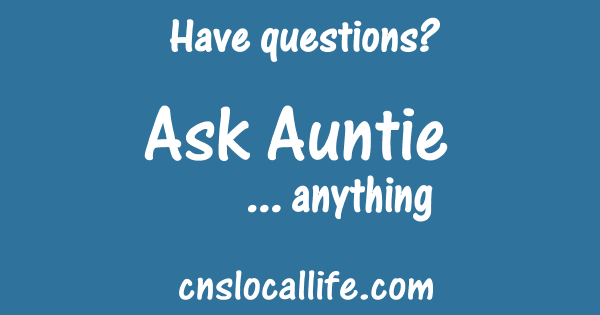Can you find out if those who have registered to cull the green iguanas have liability insurance? No one I know doing this will talk about that.
 Auntie’s answer: The issue is a bit complicated and the answer not that straightforward. I received an explanation from the Department of Environment (DoE), which is in charge of the culling exercise, and will try to keep it as simple as possible.
Auntie’s answer: The issue is a bit complicated and the answer not that straightforward. I received an explanation from the Department of Environment (DoE), which is in charge of the culling exercise, and will try to keep it as simple as possible.
First, it is helpful to understand how the culling workforce is structured. The registered cullers fall into two groups, a DoE official explained. One group comprises a few local companies, “some of whom are likely to have liability insurance, and who have staff they pay”.
However, the “vast majority” of cullers fall into the second group, which is composed of individuals who have registered and are performing the job themselves or arranging for others to cull for them, and then trading in the iguanas for payment.
So, back to your question, the official pointed out, “Few, if any, of these individuals will hold liability insurance policies – any more than a fisherman selling you their catch, for example, would be expected to hold liability insurance.”
Further complicating the issue is the fact that much of the culling is not being done by those who are registered, so “there is a large informal workforce out there that are catching iguanas and selling them to registered cullers, who then cash them in for a small profit margin at the landfill”.
These kind of arrangements make it pretty much impossible to determine who has liability insurance, the official said, adding that it was “reasonable to assume that most don’t”.
However, at the top of the culling pyramid is the cull manager, Cornwall Consulting, which is “contractually obliged to hold liability insurance”, though the “degree to which that covers the cullers is limited under the terms of the agreements between the cullers and the cull manager”.
Cornwall pays the cullers and runs the landfill reception operation. The company has signed agreements with all the registered cullers and the latter are bound by that agreement — and a parallel one with the DoE. Among the terms of the agreement are using acceptable culling techniques and obtaining permission to enter private property. In addition, the cullers are required to follow safe firearms practices as specified by their gun licences if they are using air rifles.
Registered cullers are also responsible for ensuring that anyone who works with them observe the same terms, the official explained, adding, “That is about as watertight as we can make it without limiting the size and effectiveness of the informal workforce, and the cull manager has a role in watching out for violations.”
Send questions to auntie@caymannewsservice.com



If any thing happens that you would have sue , you would only be able to sue the little fish but not the big fish . But you should let the culler on your property with specific documented instructions for them to wipe the pest out . If you don’t that would be helping government to waste more of your Tax dollars..
Or they take your eye out with an air rifle pellet when you step out of your porch innocently one morning….seems a valid question to me given he methods being used.
Liability insurance for what purpose? In case they fall out of a tree or hurt themselves some other way? If I let them onto my property then I accept any damages simply for getting rid of the pests.
Just leave them alone, they are doing a good job and making a little cash. This isn’t the USA where everyone files law suites against each other. This is a small island dealing with a big problem in a simple and effective way.
Well said!
In other words it seems some of the iguana callers are carrying on a Trade or Business without being licensed. If so they may be committing offenses under the Trade and Business licensing Law as well as under legislation governing pensions and health insurance. Have I got this right? Is the government complicit in the commission of various offenses under Cayman laws? Who do we report them to?
No you old fart, stop looking to be a snitch at every opportunity.
If I buy 10 conchs for $35 from John and then resell them for $40 to Bobo, I don’t need to legally hire John and give him benefits just for that transaction. Likewise for Bobo and I.
That is because John is a Caymanian fisherman selling his catch, and is expressly exempted from the Trade and Business Licensing Law. Whether you and Bobo need a license depends on what you propose to do with the conchs. Just make sure you are not in possession of too many conchs from Cayman waters.
I love sh!it stirrers like this!
You must live in one of the neighborhoods that have signs up not allowing culling.
It’s always something, eh! LOL
Just the Law M’am. Just the Law.
A very interesting arrangement.